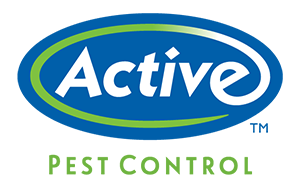Active Pest Control is making great strides to protect pollinators in our environment. Bees of all types play an important role in transferring pollen from bloom to bloom and helping to ensure that our food and plants continue to thrive year after year.
We, just as many of our customers, are concerned with the decline in the population of bees with particular attention on the most efficient pollinator, the honeybee. Science is still determining root causes for this decline and they have identified several factors; parasites, pathogens of adult and young bees, bee nutrition, weather, genetic variation, beekeeping practices, and pesticide exposure. No single factor is to blame.
To cap off Pollinator Protection week in June of 2013, President Obama issued a Presidential memorandum. That memorandum tasked a newly created “Pollinator Health Task Force” to expand federal efforts to reverse pollinator losses and help restore populations to healthy levels. The Environmental Protection Agency (EPA), a key member of this task force, has narrowed its focus down immediately to a specific type of insecticide class called neonicotinoids that has been implicated in some of the high profile bee kills seen in different parts of the country.
Honey bees and other pollinators are considered beneficial insects and we do not condone the use of insecticides of any kind on them. It is our position that honeybees are a valuable resource that should be protected. We aim to manage infestations of these insects by removal relocation and not extermination and encourage homeowners to try and live in harmony while the bees are foraging for pollen around their homes.
Active Pest Control is very aware of the pollinator issue facing us. We are working closely with our state pest control association, our national association, and our state regulatory agency to stay on the forefront of information and best management practices for management of household pests in combination with pollinator protection. We follow all EPA guidelines and label directions to ensure that we are doing what is appropriate based on the science available to us. We have shifted our product selection or exterior foliar application away from the implicated insecticides and have trained all of our partners to be extra observant when treating for normal pest issues. Treatments will be focused, and applications will not be made to buds, blooms, or leaves of flowering plants so pollinators will not come in contact with them during their foraging activities.
If you do have concerns with honeybees in or around your Atlanta property, please do not make any application of an insecticide. Please notify Active Pest Control so that we can investigate and respond accordingly for protection of this natural resource.
Protecting The Pollinators in Georgia
Serving Your Pest Needs for Over 35 Years Across Georgia
McDonough | Conyers | Lawrenceville | Alpharetta | Marietta | Columbus
Newnan | Locust Grove | Rome | Atlanta | Brunswick | Byron | Augusta | Savannah
Home » Protecting The Pollinators

